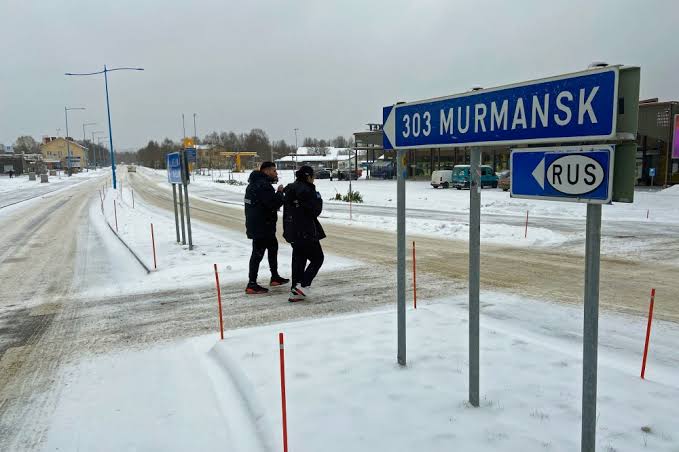Finland has decided to close its entire border with Russia to travelers for the next two weeks. This move aims to stop a significant increase in asylum seekers coming to the Nordic nation, which the Finnish government and its allies believe is a deliberate action orchestrated by Moscow. Last week, Finland had already closed all but one of its border posts with Russia, leaving only the northernmost Raja-Jooseppi crossing in the Arctic open. However, the government announced on Tuesday that even this crossing would now be closed.
Finnish authorities reported that around 900 asylum seekers, hailing from countries such as Kenya, Morocco, Pakistan, Somalia, Syria, and Yemen, have entered Finland from Russia this month. This marks a notable surge compared to the previous rate of less than one per day. Helsinki alleges that Moscow is directing people to the border in retaliation for Finland’s decision to enhance defense cooperation with the United States. The Kremlin, however, has denied these accusations.
Finland’s alignment with NATO earlier this year, ending decades of military non-alignment, was in response to Russia’s invasion of Ukraine in February 2022. Prime Minister Petteri Orpo stated, “This is Russia’s influence operation, and we do not accept it,” during a news conference.
On Monday, Prime Minister Orpo mentioned that Finland possesses intelligence information indicating Russian authorities assisting asylum seekers. Despite Finnish border closures, there were still reports of more people heading towards Finland from Russia.
On Monday, three asylum seekers arrived in Finland through the remote Raja-Jooseppi station, the last open border post. However, on Tuesday, there were no new entrants.
The border station is scheduled to remain open on Wednesday before closing until December 13, as per the government’s announcement.
The remote location of Raja-Jooseppi raised concerns from Finland’s ombudsman for non-discrimination, who noted that it might jeopardize the right to seek asylum. As a response, authorities have outlined that asylum seekers will now be limited to applying for protection at “open border crossing points for air and maritime traffic,” which primarily includes ports and airports.
Additionally, a railway crossing between Russia and Finland will remain open, but exclusively for cargo traffic.



